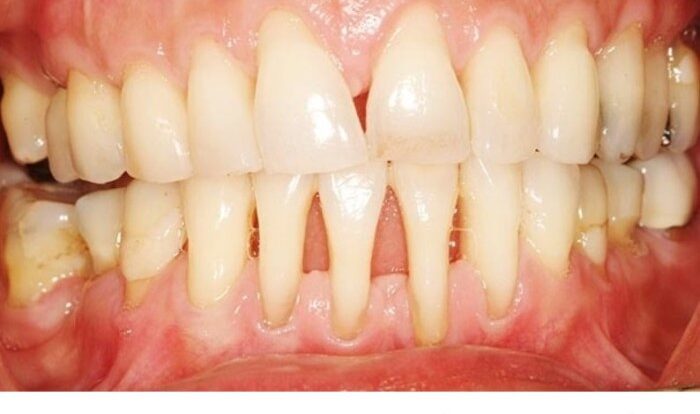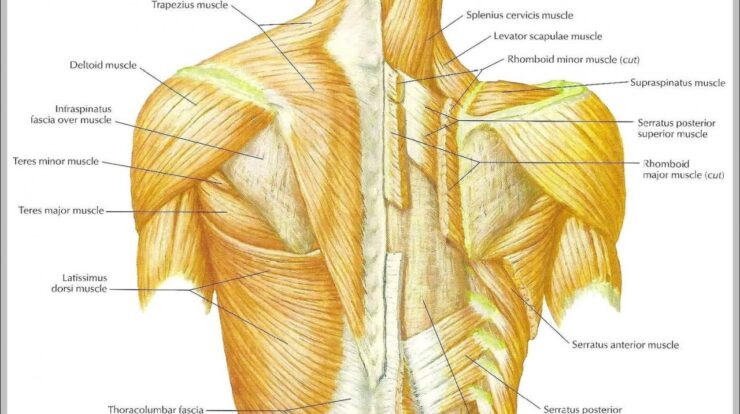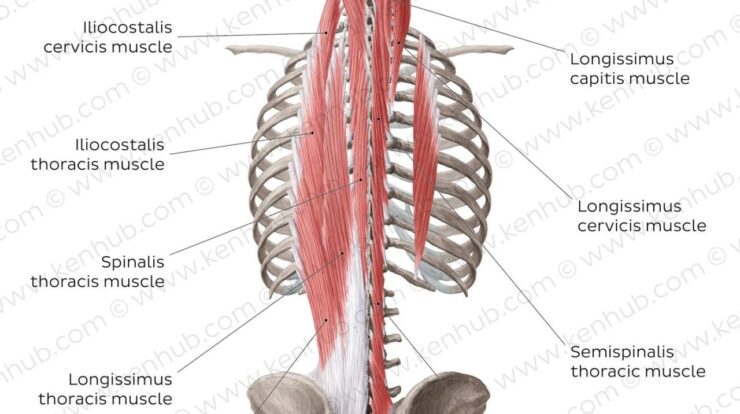
How to cure gum disease without a dentist – Gum disease is a common problem that can lead to serious health issues if left untreated. But what if you don’t have access to a dentist? There are several home remedies and lifestyle changes that can help you cure gum disease without professional intervention.
In this guide, we’ll explore the causes and symptoms of gum disease, share effective home remedies, discuss dietary and lifestyle changes that promote gum health, and provide tips on preventing recurrence.
Understanding Gum Disease

Gum disease, also known as periodontal disease, is a common oral health problem that affects the gums and supporting structures of the teeth. It is caused by bacteria that form plaque on the teeth, which can lead to inflammation, bleeding, and eventually tooth loss.
Prevalence of Gum Disease
Gum disease is a major public health problem, affecting nearly half of the adult population worldwide. In the United States, it is estimated that over 64.7 million adults have some form of gum disease.
Causes of Gum Disease
Gum disease is primarily caused by poor oral hygiene, which allows bacteria to build up on the teeth and form plaque. Other factors that can contribute to gum disease include:
- Smoking
- Diabetes
- Certain medications
- Genetic factors
Symptoms of Gum Disease
Gum disease can range from mild to severe, and symptoms can vary depending on the stage of the disease. Some common symptoms of gum disease include:
- Bleeding gums
- Swollen or tender gums
- Receding gums
- Loose teeth
- Pus between the teeth and gums
- Bad breath
- Pain when chewing
Home Remedies for Gum Disease

Gum disease is a common problem that can lead to serious health issues if left untreated. While there are many over-the-counter and prescription treatments available, there are also a number of natural remedies that can help to reduce gum inflammation and improve oral health.
If you’re looking for ways to cure gum disease without a dentist, you’re in luck! There are a number of natural remedies that can help you get rid of gum disease and improve your oral health. For more information on how to cure gum disease without a dentist, click here . You can also try using a saltwater rinse to help reduce inflammation and kill bacteria.
Saltwater Rinses
Saltwater rinses are a simple and effective way to reduce gum inflammation. The salt helps to draw out excess fluid from the gums, which can help to reduce swelling and pain. To make a saltwater rinse, simply dissolve 1/2 teaspoon of salt in 8 ounces of warm water.
Rinse your mouth with the solution for 30 seconds, then spit it out. You can repeat this process several times a day.
Tea Tree Oil
Tea tree oil is a natural antiseptic and antibacterial agent that can help to reduce gum inflammation and kill bacteria that cause gum disease. To use tea tree oil for gum disease, add a few drops of the oil to a cup of warm water and rinse your mouth with the solution for 30 seconds.
Gum disease can be a real pain, but did you know that you can cure it without ever stepping foot in a dentist’s office? That’s right, there are plenty of natural remedies that can help you get rid of gum disease for good.
Click here to learn more about how to cure gum disease without a dentist.
You can repeat this process several times a day.
Over-the-Counter Mouthwashes and Gels
There are a number of over-the-counter mouthwashes and gels that can help to reduce gum inflammation and improve oral health. These products typically contain ingredients such as chlorhexidine, cetylpyridinium chloride, or triclosan, which are all effective at killing bacteria that cause gum disease.
However, it is important to note that these products can also be harsh on the gums, so it is important to use them as directed and to avoid using them for extended periods of time.
Dietary and Lifestyle Changes for Gum Health
Maintaining good oral hygiene is crucial for preventing and treating gum disease. Besides brushing and flossing regularly, incorporating specific dietary and lifestyle changes can significantly enhance gum health.
Certain foods and beverages promote gum health, while others can contribute to gum inflammation and disease. Understanding these dietary choices can help you make informed decisions to support healthy gums.
Foods and Drinks for Gum Health
- Fruits and Vegetables:Rich in vitamins, minerals, and antioxidants, fruits and vegetables like berries, leafy greens, and citrus fruits help strengthen gums and reduce inflammation.
- Whole Grains:Whole grains provide fiber, which stimulates saliva production and helps cleanse the mouth, reducing plaque and bacteria buildup.
- Dairy Products:Calcium and vitamin D in dairy products, such as milk, cheese, and yogurt, support bone and gum health.
- Green Tea:Contains polyphenols that have antibacterial and anti-inflammatory properties, beneficial for gum health.
- Water:Staying hydrated helps flush away bacteria and food particles, preventing plaque formation and gum disease.
Importance of Quitting Smoking and Reducing Stress
Smoking is a significant risk factor for gum disease. Nicotine constricts blood vessels, reducing blood flow to the gums, which impairs healing and increases susceptibility to infection. Quitting smoking is crucial for improving gum health and overall well-being.
Stress can also contribute to gum disease by suppressing the immune system and increasing inflammation. Engaging in stress-reducing activities like exercise, meditation, or yoga can help mitigate stress and promote gum health.
There are a few ways to cure gum disease without a dentist, including using over-the-counter mouthwashes and gels that contain antibacterial ingredients. You can also try natural remedies like gargling with salt water or applying tea tree oil to the affected area.
If your gum disease is severe, you may need to see a dentist for professional treatment. For more information on how to cure gum disease without a dentist, click here .
When to Seek Professional Help: How To Cure Gum Disease Without A Dentist
While home remedies and lifestyle changes can help manage gum disease in its early stages, it’s crucial to consult a dentist if the condition worsens or does not improve with self-care.
Here are some guidelines to help you determine when professional help is necessary:
- Persistent bleeding or swelling of the gums
- Gum recession or loose teeth
- Severe pain or discomfort in the gums or teeth
- Pus or discharge from the gums
- Bad breath or a persistent metallic taste in the mouth
If you experience any of these symptoms, it’s essential to schedule an appointment with your dentist promptly.
Treatment Options, How to cure gum disease without a dentist
Once you visit the dentist, they will assess the severity of your gum disease and recommend the appropriate treatment. Common treatment options include:
- Scaling and root planing:This procedure involves removing plaque and tartar from the teeth and root surfaces, smoothing the root surfaces to prevent bacteria from accumulating.
- Antibiotics:In cases of severe gum disease, antibiotics may be prescribed to eliminate the infection.
- Surgery:In advanced cases, surgery may be necessary to remove damaged gum tissue or bone and regenerate healthy tissue.
Maintaining Gum Health After Treatment
After successfully treating gum disease, it’s crucial to adopt preventive measures to prevent recurrence. By following these tips and maintaining regular dental checkups, you can preserve your oral health and enjoy a healthy smile for years to come.
Gum disease can be a pain, but there are ways to treat it without going to the dentist. If you’re looking for a natural way to cure gum disease, check out this article on how to cure gum disease without a dentist.
It provides some great tips on how to treat gum disease at home, so you can get your smile back in no time.
Maintaining good oral hygiene practices is paramount. Brush your teeth twice daily with a soft-bristled toothbrush and fluoride toothpaste, and floss at least once a day to remove plaque and bacteria from between your teeth. Regular dental cleanings are essential for removing tartar buildup and detecting any early signs of gum disease recurrence.
Dental Checkup and Cleaning Schedule
The recommended frequency of dental checkups and cleanings varies depending on your individual risk factors and oral health status. Here’s a general guideline:
| Risk Level | Recommended Frequency |
|---|---|
| Low risk | Every 6 months |
| Moderate risk | Every 3-4 months |
| High risk | Every 2-3 months |
End of Discussion

By following the tips and advice in this guide, you can effectively cure gum disease without a dentist and maintain optimal oral health. Remember, prevention is key, so regular dental checkups and cleanings are crucial for long-term gum health.
Question Bank
Can I cure gum disease with salt water rinses?
Yes, salt water rinses can help reduce gum inflammation and kill bacteria. Dissolve half a teaspoon of salt in a glass of warm water and rinse your mouth for 30 seconds, twice a day.
What foods should I avoid if I have gum disease?
Sugary foods, processed snacks, and acidic drinks can contribute to gum disease. Focus on eating a balanced diet rich in fruits, vegetables, and whole grains.
Is it possible to prevent gum disease?
Yes, practicing good oral hygiene, quitting smoking, and managing stress can significantly reduce your risk of developing gum disease.





